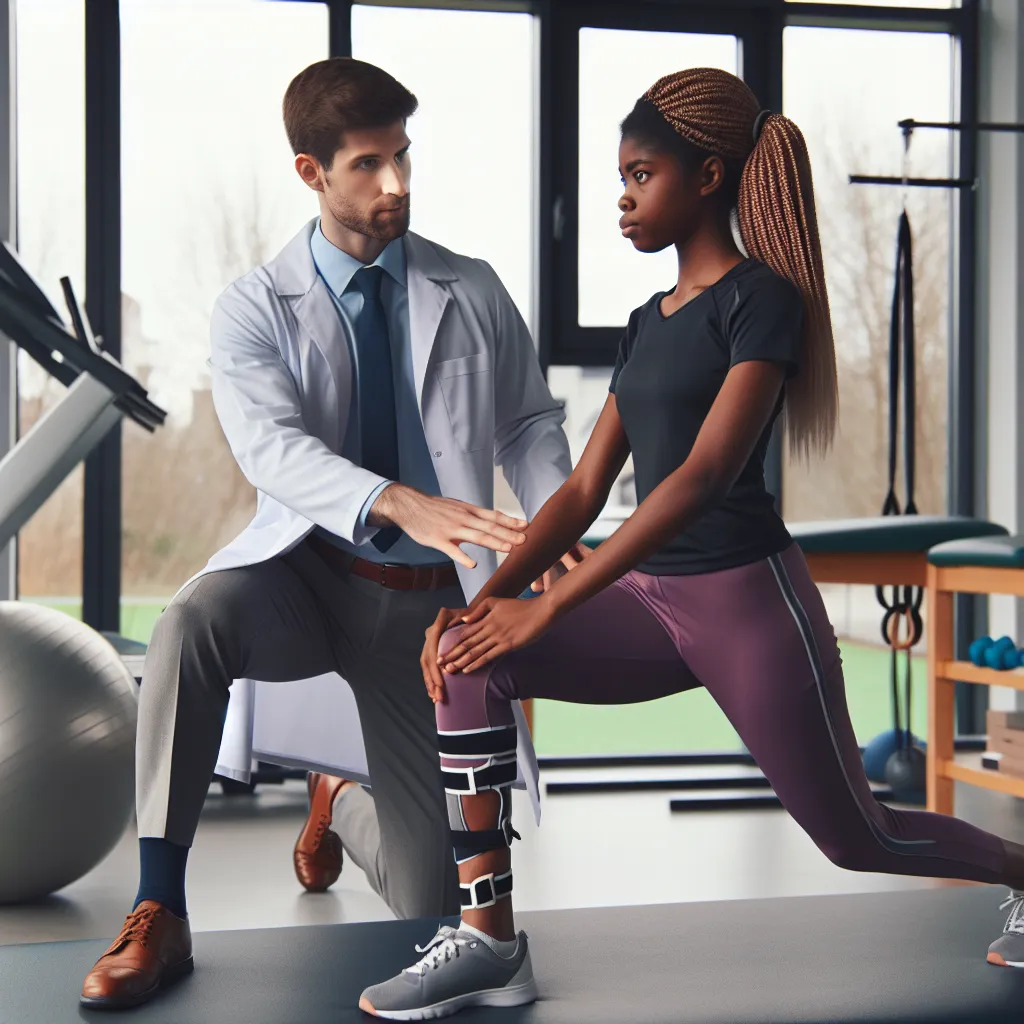Physical therapy is a crucial field in healthcare that focuses on restoring and maintaining physical function and mobility. As an IELTS candidate, understanding and using vocabulary related to physical therapy can significantly enhance your performance in the exam. Let’s explore this topic in depth to help you excel in your IELTS preparation.
Understanding the Term ‘Physical Therapy’
Definition: Physical therapy is a healthcare profession that aims to restore, maintain, and promote optimal physical function, mobility, and overall well-being.
Part of Speech: Noun
Pronunciation: /ˈfɪzɪkəl ˈθerəpi/
Context and Usage
Physical therapy is commonly used in various healthcare settings. Let’s examine some examples:
-
“After her knee surgery, Sarah underwent physical therapy to regain strength and mobility in her leg.”
Analysis: This sentence demonstrates the use of physical therapy in post-operative recovery. -
“The sports team employed a physical therapy specialist to prevent and treat injuries among athletes.”
Analysis: Here, we see the application of physical therapy in sports medicine. -
“Elderly patients often benefit from physical therapy to improve balance and reduce the risk of falls.”
Analysis: This example shows how physical therapy is used in geriatric care. -
“The rehabilitation center offers comprehensive physical therapy programs for stroke survivors.”
Analysis: This sentence illustrates the role of physical therapy in neurological rehabilitation. -
“Many companies now provide on-site physical therapy services to address workplace ergonomic issues.”
Analysis: This example highlights the use of physical therapy in occupational health.
In the IELTS exam, you’re likely to encounter the term ‘physical therapy’ in reading passages related to healthcare, sports, or occupational health. It may also be a useful term in Writing Task 2 essays discussing healthcare systems or aging populations.
Analyzing the Vocabulary
Word Structure
The term ‘physical therapy’ consists of two parts:
- ‘Physical’: relating to the body
- ‘Therapy’: treatment intended to relieve or heal a disorder
Understanding this structure can help you recognize and use related terms like ‘occupational therapy’ or ‘speech therapy’.
Synonyms and Antonyms
Synonyms:
- Physiotherapy /ˌfɪziəʊˈθerəpi/ (noun): Often used interchangeably with physical therapy, especially in British English.
- Rehabilitation /ˌriːəˌbɪlɪˈteɪʃən/ (noun): The process of restoring someone to health or normal life through training and therapy.
- Kinesiology /kɪˌniːsiˈɒlədʒi/ (noun): The study of human movement and body mechanics.
Antonyms:
- Inactivity /ˌɪnækˈtɪvəti/ (noun): The state of being inactive or idle.
- Immobilization /ɪˌməʊbɪlaɪˈzeɪʃən/ (noun): The act of preventing movement or mobility.
Memorization Techniques
Mind Mapping
Create a mind map with ‘Physical Therapy’ at the center, branching out to related concepts such as:
- Types of treatments (e.g., massage, exercise, electrotherapy)
- Conditions treated (e.g., sports injuries, arthritis, back pain)
- Tools used (e.g., resistance bands, ultrasound machines, balance boards)
Creating a Story
Imagine a story about a physical therapist helping an athlete recover from an injury. Visualize the therapy sessions, the exercises performed, and the gradual improvement in the athlete’s condition. This narrative approach can help embed the vocabulary in your memory.

Practice Exercises
-
Sentence Completion:
Fill in the blanks with the appropriate form of ‘physical therapy’ or related terms:
a. After the accident, John needed intensive to regain his ability to walk.
b. The designed a home exercise program for her patient with chronic back pain.
c. Modern ___ techniques often incorporate virtual reality for patient engagement. -
IELTS Writing Task 2 Practice:
Write a paragraph discussing the importance of physical therapy in an aging population. Use at least three related terms from this lesson. -
IELTS Speaking Practice:
Describe a time when you or someone you know received physical therapy. What was the condition? How did the therapy help? What was the outcome?
Remember to review these terms regularly and use them in context to reinforce your learning.
Conclusion
Mastering vocabulary related to physical therapy can significantly enhance your performance in the IELTS exam, particularly in health-related topics. By understanding the context, analyzing the word structure, and practicing regularly, you’ll be well-prepared to use this terminology effectively in your reading, writing, and speaking tasks.
We encourage you to share your experiences with learning and using this vocabulary in the comments section below. Have you encountered ‘physical therapy’ or related terms in your IELTS preparation? How do you plan to incorporate this new vocabulary into your study routine? Your insights could be valuable to other learners!
For more information on related topics, you might find our articles on massage therapy and sports therapy helpful in expanding your healthcare vocabulary further.